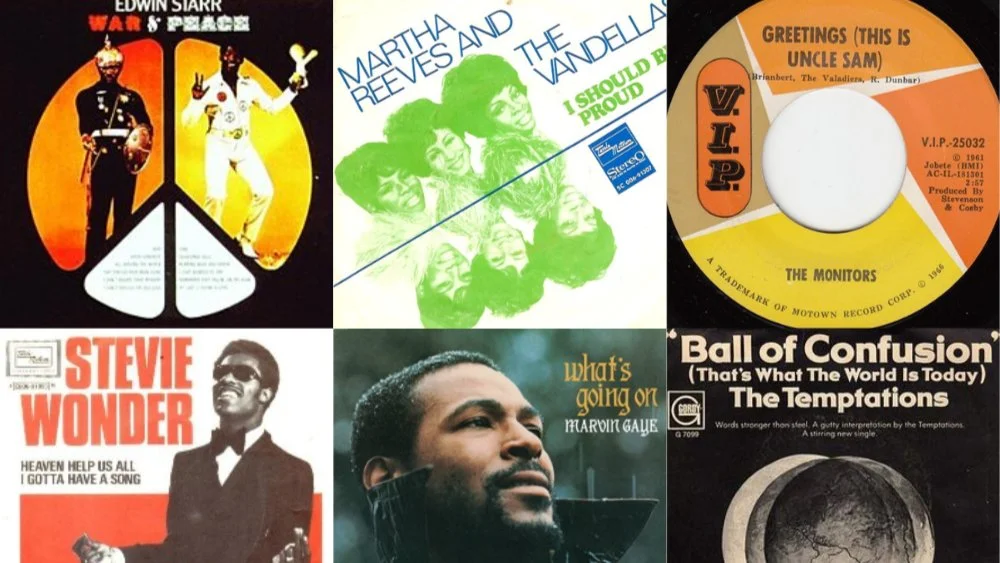Music has always been more than just entertainment; it’s been a powerful vehicle for social change. From protest songs echoing through crowded streets to anthems that defined generations, the universal language of music has repeatedly proven its ability to unite, inspire, and challenge. The upcoming “Motown Meets the Movement” event reminds us of how melodies and lyrics have historically amplified voices for justice and equality.
Introduction and Historical Context:
The 1960s marked a pivotal moment when music transcended its role as mere entertainment to become a formidable force for social change. Artists who once sang exclusively about love and heartbreak began addressing pressing societal issues through their craft. Motown Records, originally known for producing polished hits designed for mainstream appeal, gradually embraced more socially conscious themes as the decade progressed. This evolution reflected a broader cultural shift where musicians increasingly viewed their platforms as opportunities to advocate for justice and equality rather than simply providing escapism.
This musical transformation occurred against the backdrop of monumental social upheaval. The civil rights movement was gaining momentum, with activists fighting against entrenched segregation and discrimination. Simultaneously, growing opposition to the Vietnam War sparked nationwide protests as young Americans questioned government policies. These turbulent circumstances created fertile ground for artists across musical genres—folk singers like Bob Dylan, rock groups such as The Beatles, soul performers including Sam Cooke, and eventually Motown stars like Marvin Gaye—to channel the nation’s pain, hope, and determination into songs that both reflected and shaped the era’s struggles for a more just society.

- Motown Meets the Movement: An engaging evening of music and history this August 2025. Source: meetup.com
Event Information:
The “Motown Meets the Movement” pre-concert talk will take place at the War Memorial’s Community Room on Wednesday, August 27, 2025, from 6:00 to 6:45 PM at 32 Lake Shore Road, Grosse Pointe Farms, MI. This free educational event requires pre-registration through the War Memorial website. Following the talk, attendees can enjoy the SummerFest Concert finale featuring Drey Skonie & the Klouds at 7:30 PM, presented in partnership with the Motown Museum. The concert portion requires no registration, and guests are encouraged to bring chairs or blankets for outdoor seating. Both events offer free on-site parking, with food and beverages available for purchase when the grounds open at 6:00 PM.
Led by Chris Hemler, the Cynthia N. Ford Chair of History and Social Studies at University Liggett School, this enlightening discussion will explore how music became intertwined with social activism during one of America’s most tumultuous decades. Hemler brings impressive credentials to this presentation, having been named the 2025 History Teacher of the Year by the Historical Society of Michigan and serving as an educator-partner with the Smithsonian Institute. His extensive background in teaching courses on the 1960s and American history makes him uniquely qualified to guide attendees through this fascinating intersection of popular culture and political consciousness.
Notable Artists and Legacy:
The 1960s produced iconic musical activists whose work became inseparable from the movements they championed. Bob Dylan’s “Blowin’ in the Wind” and “The Times They Are a-Changin'” became anthems for an entire generation questioning authority. Marvin Gaye’s groundbreaking 1971 album “What’s Going On” represented Motown’s evolution toward social consciousness, addressing environmental destruction, poverty, and the Vietnam War. Meanwhile, Nina Simone’s “Mississippi Goddam” responded directly to racial violence, while Sam Cooke’s “A Change Is Gonna Come” expressed both the struggles and hopes of the civil rights movement. These artists didn’t merely observe social movements—they actively participated in them, using their celebrity to amplify causes and mobilize supporters.
The legacy of this musical activism continues to resonate throughout American culture and has inspired subsequent generations of socially conscious artists. The model established during this era of musicians using their platforms to advocate for change has become a template followed by artists from Public Enemy to Beyoncé. Chris Hemler’s educational work exploring these connections helps contemporary audiences understand how cultural expressions can function as powerful tools for social transformation. Similarly, the Motown Museum’s preservation efforts ensure that this crucial chapter in American musical history remains accessible to future generations, highlighting how the sounds that once filled Detroit recording studios helped shape the nation’s ongoing struggle for equality and justice.
